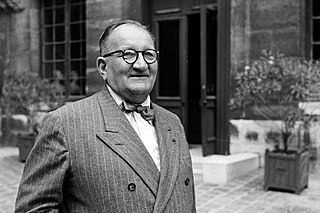A Quote by Fyodor Dostoevsky
I cannot understand why the world is arranged as it is.
Quote Topics
Related Quotes
If one thinks about racism by examining only one wire of the cage, or one form of disadvantage, it is difficult to understand how and why the bird is trapped. Only a large number of wires arranged in a specific way, and connected to one another, serve to enclose the bird and to ensure that it cannot escape.
Why are there organized beings? Why is there something rather than nothing? Here again, I fully understand a scientist who refuses to ask it. He is welcome to tell me that the question does not make sense. Scientifically speaking, it does not. Metaphysically speaking, however, it does. Science can account for many things in the world; it may some day account for all that which the world of phenomena actually is. But why anything at all is, or exists, science knows not, precisely because it cannot even ask the question.
Everyone wants to understand art. Why not try to understand the song of a bird? Why does one love the night, flowers, everything around one, without trying to understand them? But in the case of a painting people have to understand. If only they would realize above all that an artist works of necessity, that he himself is only a trifling bit of the world, and that no more importance should be attached to him than to plenty of other things which please us in the world, though we can't explain them. People who try to explain pictures are usually barking up the wrong tree.
I'm not saying we are not to be held accountable. What I'm saying is that we need to appreciate past, if you don't appreciate past, you cannot understand why we are like this, why the churches and mosques are controlling our society, why Africans feel inferior. Why are our girls bleaching or make long hair? They all want to be white, Why are they not proud? Why are we not proud of name, of our clothes?
Technique is really personality. That is the reason why the artist cannot teach it, why the pupil cannot learn it, and why the aesthetic critic can understand it. To the great poet, there is only one method of music - his own. To the great painter, there is only one manner of painting - that which he himself employs. The aesthetic critic, and the aesthetic critic alone, can appreciate all forms and all modes. It is to him that Art makes her appeal.
There is no denying that unhappiness - even violence - exists in some arranged marriages. Or that some arranged marriages are borne out of cruelty. And part of that six percent global divorce rate can be attributed to the powerful stigma against divorce that's present in countries where arranged marriage is common.
When I find too many puzzles about the way explanations are given about why there is inequality - why people who work the hardest in the world end up being the poorest - I can't just sit back and not try to understand why the gaps between people are increasing, or why there are so many homeless and hungry people in the world.





































